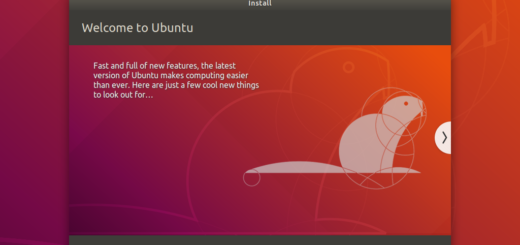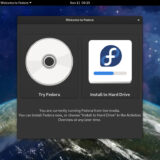Fedora 33 new features: a bunch of updates

Fedora 33 is the second release of 2020 of the popular power user distribution: Fedora. Fedora is the base for Red Hat Enterprise Linux and it is favored among developers. Let’s discover what will change in this release.
When will it be released?
Fedora 32 is scheduled to be released on 27th October 2020.
How do I install Fedora 33?
Soon after the release of Fedora 33 you will find a step-by-step tutorial here.
System-wide changes
- BTRFS is now the default filesystem in Fedora Workstation.
- Swap setups now default to zram, a system to compress RAM.
- Fedora now has a IoT Edition.
- Nano replaces Vim as default editor.
- Fedora will now enforce stronger default crypto settings.
- Aarch64 Pointer Authentication & Branch Target Enablement is a change that will harden ARMv8 (Aarch64) machines.
- Cleanup GNOME Hidden Boot Menu Integration: Fedora currently has patches for this feature, removing such patches in favor of a bootloader-agnostic solution is the preferred course.
- CMake will use a separate build folder by default.
- dmraid-activation.service will be disabled on first run if no dmraid sets are found.
- ELN Buildroot and Compose are part of a new process to produce artifacts, it doesn’t impact end users.
- MinGW environment and toolchain updated to the latest upstream stable release.
- FlexiBLAS will be used as BLAS/LAPACK manager, this will set OpenBLAS as a system-wide default backend.
- NetworkManager now uses its keyfile format instead of ifcfg-rh for new profiles by default.
- device-mapper-multipath removed from Fedora Workstation livecd. This is mostly needed by server/enterprise environments.
- glibc-headers both i686 and x86_64 merged into noarch package.
- RPM updated to version 4.16.
- RPM now uses SQLite as default database format.
- The translation platform will be migrated to Weblate, the old one: Zanata will be completely removed.
- Link Time Optimization will be enabled by default for packages built with rpmbuild.
Self-contained
- .NET Core now available on Aarch64 (ARMv8).
- Fedora Workstation now has an animated background by default.
- python-pytoml packaged deprecated.
- mod_php dropped.
- DXVK will be used as default wined3d backend on Vulkan-capable hardware.
- IBUS updated to 1.5.23.
- EarlyOOM installed and enabled by default in Fedora KDE.
- LXQt updated to 0.15.0.
- Reintroduced fedora-repos-modular (separate -modular.repo files for dnf/yum).
- Network Time Security authentication now supported by Chrony and Anaconda during installation.
- No more automagic Python bytecompilation: “The current way of automatic Python byte-compiling of files outside Python-specific directories is too magical and error-prone. It is built on heuristics that are increasingly wrong. We will provide a way to opt-out of it and adjust the guidelines to prefer explicit bytecompilation of such files. Later, the old behavior will be opt-in only or will cease to exist.”
- NSS dbm support removed, SQLite has been used as default since Fedora 28.
- PARSEC, an API to hardware security and cryptographic services, support introduced.
- RPM dependencies now generated automatically for Python Extras.
- Introducing Storage Instantiation daemon, a way to identify storage devices, dependencies and track them.
- Stratis updated to 2.1.0.
- (Workstation) Better thermal management using thermald in default installations.
- X.org utilities will be splint into several different packages.
Developers
- Binutils updated to version 3.4.
- Boost updated to 1.73.
- GlibC updated to 2.32.
- Golang updated to 1.15.
- OpenJDK (Java) updated to version 11, now default version.
- Libdb is deprecated, due to BerkleyDB licensing.
- LLVM updated to version 11.
- GNU Make updated to 4.3.
- NodeJS updated to 14.x.
- Perl updated to 5.32.
- Python updated to 3.9.
- Erlang updated to version 23.
- GHC updated to 8.8, Haskell Stackage updated to LTS 16.
- The %{__python} macro raises an error by default.
- python26 and python34 retired.
- Ruby on Rails updated to version 6.0.
- 2020 A year in review for Marksei.com - 30 December 2020
- Red Hat pulls the kill switch on CentOS - 16 December 2020
- OpenZFS 2.0 released: unified ZFS for Linux and BSD - 9 December 2020









Recent Comments